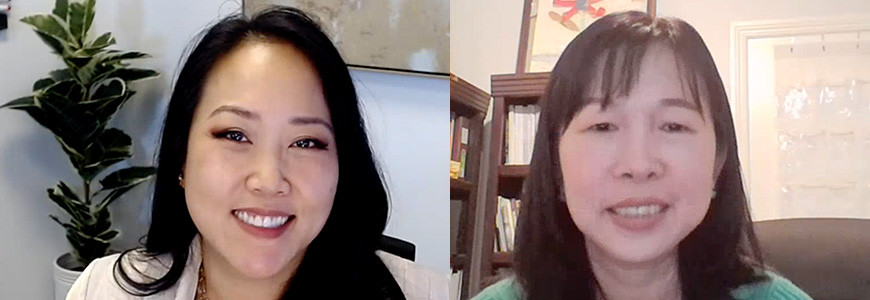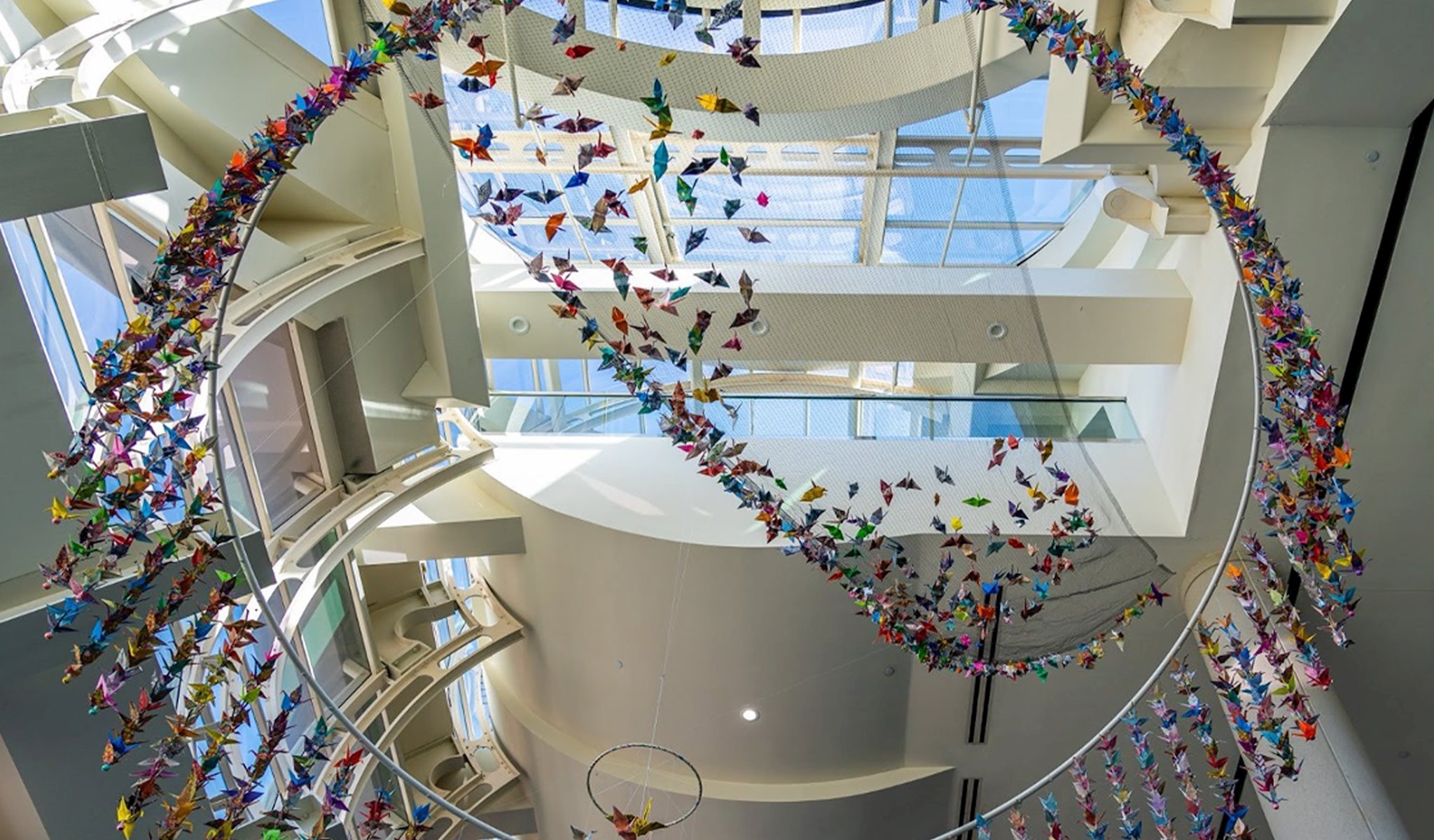Everyday hero and mother Kathy Liu celebrated Asian American and Pacific Islander Heritage Month with William Blair colleagues by sharing her story of resilience and determination that led to founding a 100% volunteer-led pediatric cancer research charity, Joey’s Wings Foundation, in memory of her son.
Since its inception less than 10 years ago, the foundation has worked with the nation’s top researchers in renal cell carcinoma to discover a cure for kidney cancer and develop transforming patient care. Joey’s Wings partners with Tutors Without Borders to offer free tutoring services for children battling cancer, offers a patient registry and tissue bank for families to connect, lobbies for legislation to improve treatment options, and provides financial assistance for pediatric cancer patients.
Liu’s passion to help other families and children suffering from rare kidney cancers is the force behind Joey’s Wings. As an Asian woman, she readily admits that it is often very difficult to share family sadness within the Asian community.
“We tend to keep all the pains to ourselves, we don’t necessarily reach out for help,” Liu says. “But I am different. My child had such a rare cancer, I have to be vocal. I have to tell people, otherwise where is the awareness? If there is no awareness, there will be no action, no cure.”
Celebrating Asian Americans and Pacific Islanders
William Blair’s ONE Alliance, which celebrates all cultures and ethnicities, invited Liu to speak to colleagues virtually on May 24 in honor of the generations of Asian Americans and Pacific Islanders who have enriched America’s history, culture, and achievements.

An elementary school teacher, Liu immigrated from China with her husband when she was in her early 30s. They lost their oldest son, Joey, to a rare and aggressive form of kidney cancer in 2014 at the age of 10.
Joey was a very energetic child, was a math whiz, enjoyed soccer, and played the violin in the county youth orchestra. He also was an artist and origamist. Liu recalled how he loved folding origami paper and would continually fold paper while he waited for his chemo treatments at the hospital.
“When he passed away it was hard for me, I could not find peace,” Liu says. “Then one day I was looking through all of Joey’s origami and thought I should try something my child liked. It’s amazing when he was here, I never did origami and now I do it every day. It’s a way to honor my child but it also brings so much peace and comfort to me.”
Cranes for a Cure Campaign
Joey’s love of origami inspired Liu to establish the Cranes for a Cure campaign, one of the foundation’s many fundraisers for pediatric cancer research and awareness. The group sells colorful origami strings and mobiles consisting of paper cranes, provides them to cancer patients, and creates large public art installations using the folded cranes.
Origami cranes are one of the most popular forms of origami. In China and Japan, the crane is considered a mystical or holy creature. According to Asian legends, hanging them in one’s home is thought to be a power of luck, bringing hope and uplifting spirits. And if you fold 1,000 origami cranes, one wish will be granted, Liu says. Her wish is to find a cure for childhood cancer.
Liu imagined that by making large string mobiles, each with 2,000 cranes, these art installations would create an impactful vision and raise awareness that 2,000 children die each year from cancer.
Volunteers from across the country fold colorful cranes, sending them to the foundation. They are then turned into large mobiles to be hung in the lobbies and public gathering spaces of hospitals, churches, libraries, and other institutions, providing inspiration and hope to visitors.
White House Cancer Moonshot
Liu is particularly inspired by what can be achieved when people from different cultures and backgrounds work together to create change. She has worked tirelessly with others advocating that drug companies be required to develop drugs for children when the molecular targets are relevant to childhood cancers. That occurred with the RACE for Children Act that became law a few years ago.
She was also invited to attend the White House Cancer Moonshot Childhood Cancer Forum in 2022, joining other advocates nationwide with a mission to find a cure for childhood cancer. The forum included lengthy discussions on some of the most important issues of pediatric cancer.
“We hope our research can have children fly beyond cancer,” Liu says.



